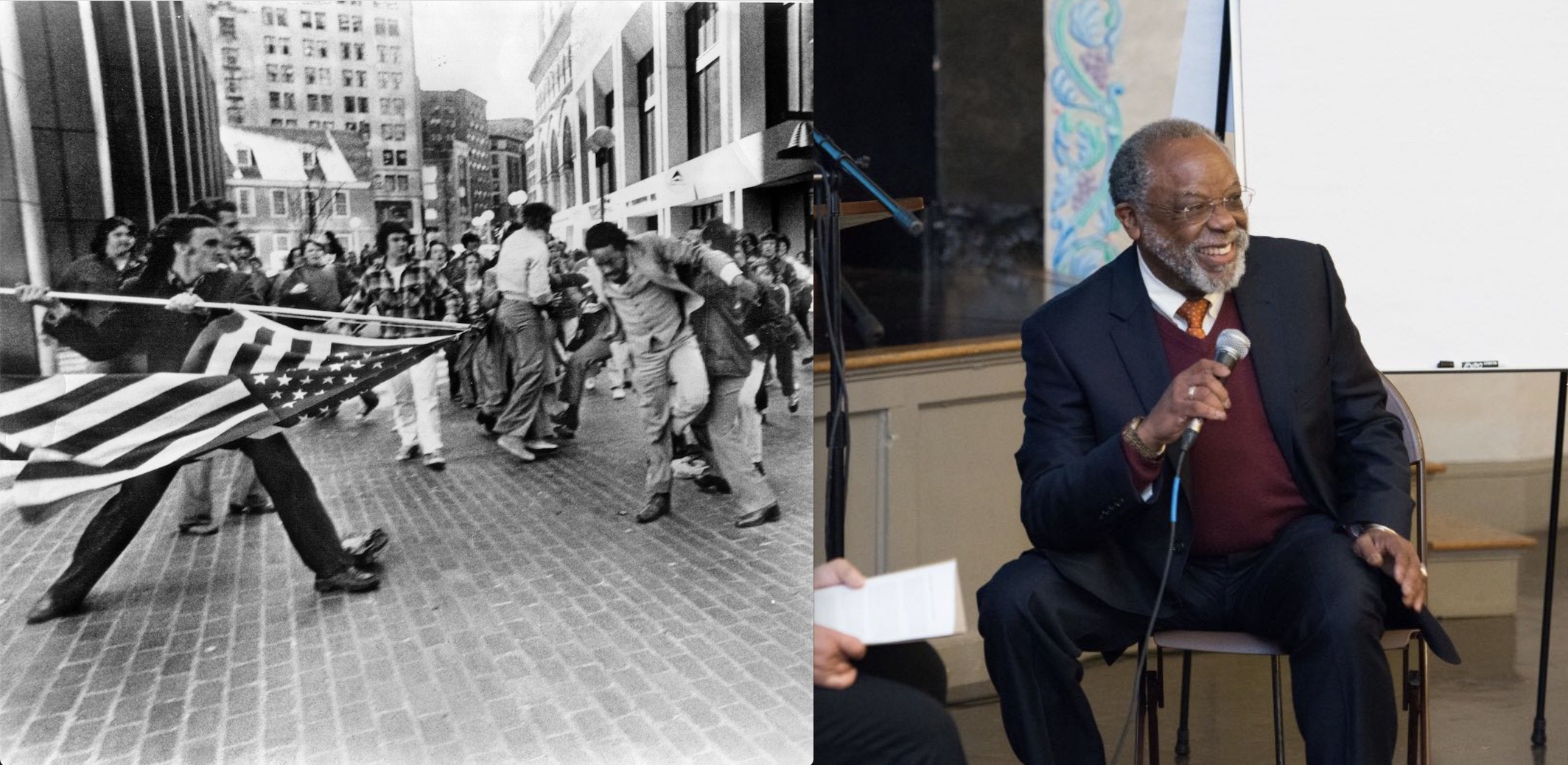I’ve had a dozen great guests on the What’s New podcast, but this week’s episode features a true legend: Ted Landsmark. He is probably best known as the subject of a shocking Pulitzer Prize-winning photograph showing a gang of white teens at a rally against school desegregation attacking him with an American flag. The image became a symbol of tense race relations in the 1970s, not only in Boston but nationwide.

(photo credits: Stanley Forman/Brian Fluharty)
He should be better known, however, for his decades of work shaping the city of Boston and the greater Boston area, and for his leadership in education, transportation planning, architecture, and other critical aspects of the fabric of the city. The assault on him on City Hall Plaza in Boston only intensified his activism, and set him on a path to be at the center of how the city would be developed over the last 40 years. It’s a remarkable story.
On the podcast Ted Landsmark recounts not only this personal history, but the history of a Boston in general, and he provides a 360-degree view of how cities are designed, managed, and are responsive (or unresponsive) to community needs and desires. His sense of how urban feedback systems work, from local politics to technology like the 311 phone number many cities have implemented to hear from their citizens, is especially smart and helpful.
I hope you’ll tune in.

Leave a Reply
You must be logged in to post a comment.